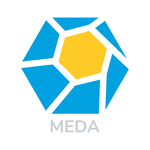 | MEDA4: 17th ERME Topic Conference - Mathematics Education in the Digital Age University of Bari Aldo Moro Bari, Italy, September 3-6, 2024 |
| Conference website | https://www.dm.uniba.it/meda4 |
| Submission link | https://easychair.org/conferences/?conf=meda4 |
| Submission deadline | March 13, 2024 |
Teaching, learning and assessment practices within all phases of mathematics education have dramatically changed due to global pandemics and the increasing dependences on digital technologies across education systems. Meanwhile, the field has witnessed significant changes in research foci regarding the different ways and uses of digital technologies; from supporting active engagement in rich STEM activities to enabling new assessment practices, communication, and collaboration opportunities. More than ever before, it seems that intensive research is now needed on the wide spectrum of roles that technologies play in mathematics education at all phases.
Alongside, rapid developments in Artificial Intelligence (AI) technologies are poised to impact education in, as yet, unseen ways. There is a lack of timely and responsive research that can grasp, document, and acknowledge the positive and negative impacts of digital technologies with respect to its potential to both innovate, and seek to address existing and emerging educational and societal challenges within the context of mathematics education. Therefore, ‘New Digital Experiences and Perspectives in Mathematics Education’ is a theme that captures the goals for this proposed ERME Topic Conference “Mathematics Education in the Digital Age MEDA 4”, which will offer space for discussing future directions in the research in mathematics education post-pandemic, and in the age of Artificial Intelligence.
Submission Guidelines
Whilst we propose three themes to support more focused work during the conference, we are acutely aware of the overlaps and relationships between all three. Consequently, we will welcome research papers that bridge two or three of the conference themes, and we will support the ‘cross- theme’ work by scheduling sessions during the conference for participants to come together and discuss the relationships between the themes.
The conference particularly welcomes contributions at any level of mathematics education: pre- school, primary, lower- and upper-secondary or tertiary. Any paper/poster of relevance to the overall focus of the group will be considered.
Papers (8 pages) and poster (2 pages) proposals should use the MEDA template.
Each paper will be peer-reviewed also with the involvement of the authors. The OC –with inclusion of the IPC– will decide on the final acceptance.
All the accepted papers and posters will be published (with ISBN) in a volume of Proceedings that will be ready at the Conference.
Themes
The rationale for the conference is as an interdisciplinary, multifaceted collaboration that will bring together participants who would normally attend a range of TWGs alongside researchers working outside of the ERME community. We will welcome theoretical, methodological, empirical or developmental papers and poster proposals in relation to the following three main conference themes, which will inform both the call for papers and the subsequent organisation of the conference working groups and their intended outputs:
Theme 1: Mathematics educators’ practices, teacher education and professional learning
- Shared virtual/hybrid spaces and resources for teacher education and professional learning;
- Formative and summative assessment in remote and hybrid conditions at all levels of education;
- Teachers’ experiences and practices in STEM contexts, with Artificial Intelligence, or regarding the promotion of computational thinking.
Theme 2: Design, implementations and evaluations of digital resources and environments
- Design and implementation of resources with emerging technologies such as 3D printers, Virtual Reality, and Augmented Reality;
- Applications of Learning Management Systems, Learning Analytics and Artificial Intelligence in practices, assessment and design of resources;
- Impact of emerging technologies on curriculum transformation in STEM contexts, or regarding the promotion of computational thinking within mathematics education.
Theme 3: Students’ experience and learning with digital technologies
- Impact of digital technologies on students’ engagement, learning and assessment;
- Development and investigation of students’ learning with emerging technologies;
- Role of technologies in developing mathematical competencies in STEM contexts; - Integration of Artificial Intelligence technologies within formal, high-stakes examination and assessment systems.
Committees
Organizing Committee
-
Hans-Georg Weigand (Germany)
-
Alison Clark-Wilson (UK)
-
Eleonora Faggiano (Italy)
-
Michal Tabach (Israel)
Program committee
-
Hans-Georg Weigand (Germany) – Chair
-
Bärbel Barzel (Germany)
-
Rogier Bos (The Netherlands)
-
Roberto Capone (Italy)
-
Eirini Geraniou (UK/Greece) – member of the ERME board
-
Luca Lamanna (Italy) – YR Representative of YERME
-
Janka Medová (Slovakia)
-
Ornella Robutti (Italy) – leader of TWG 16 at CERME 13
-
Helena Rocha (Portugal)
-
Osama Swidan (Israel) – leader of TWG 15 at CERME 13
-
Jana Trgalova (Switzerland/France) – member of the ERME board
-
Melih Turgut (Norway/Turkey)
Local Organizing Committee
-
Eleonora Faggiano – Chair
-
Roberto Capone – Co-chair
-
Maria Lucia Bernardi
-
Antonio Leserri
-
Ida Maiellaro
-
Federica Troilo
Venue
The conference will be held at the University of Bari Aldo Moro in Bari (Italy)
03- 06, September 2024
Contact
All questions about submissions should be emailed to: etc17meda4@gmail.com
